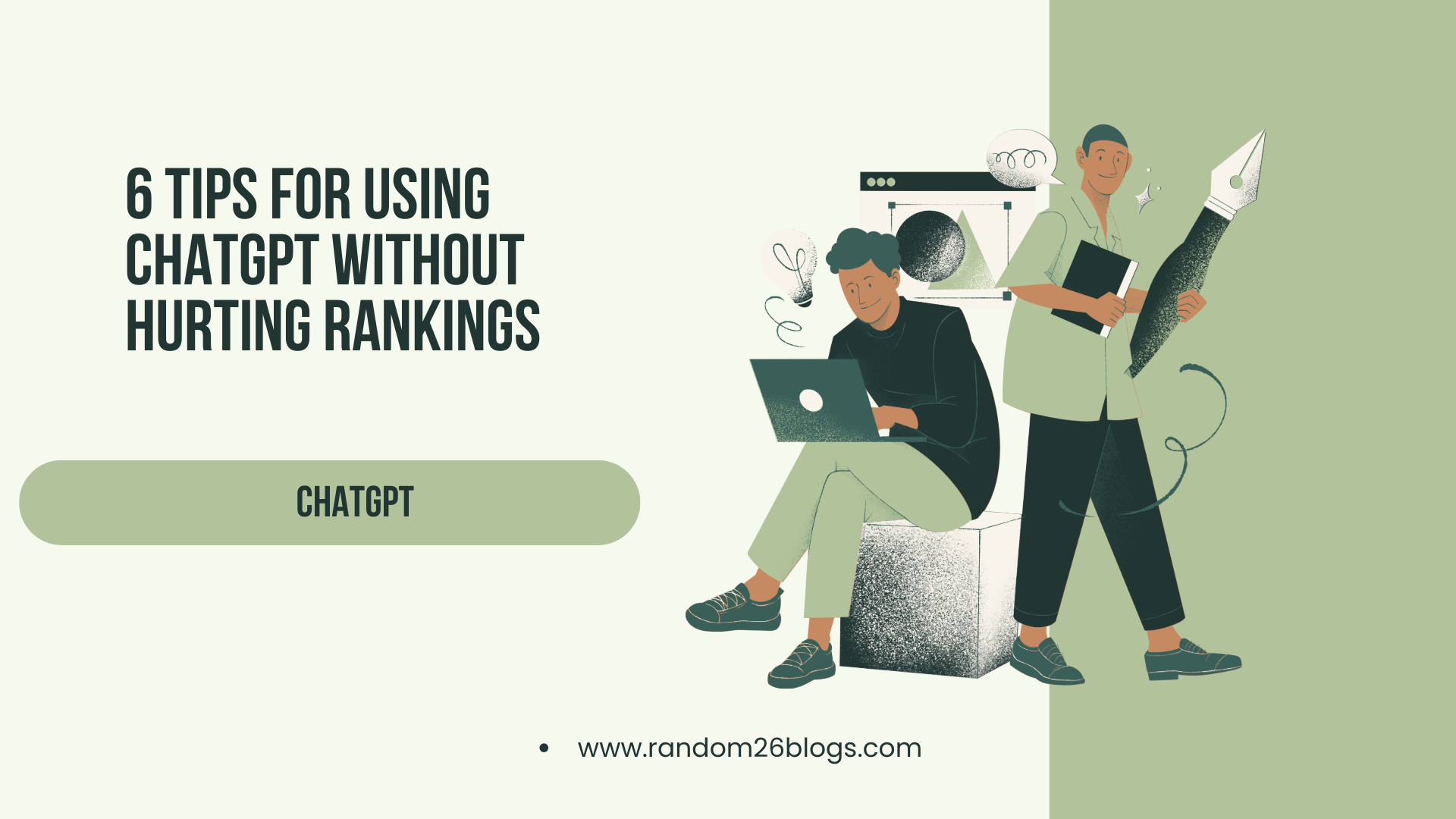ChatGPT wasn’t made just for marketing, but it’s become a handy tool for many tasks, including SEO.
If you’re wondering, “Can I use ChatGPT for SEO?” the answer is yes—with some effort. A better question might be, “Is ChatGPT good for SEO?” When used right, it can help simplify and speed up parts of your strategy.
To make the most of it, here are six practical ways to use ChatGPT for SEO without messing up your rankings.
Before You Start: What You Need to Know
SEO often starts with content creation, so let’s focus on that. But before you dive in, keep these three things in mind:
- Pick the right topics. Figure out what your audience cares about by understanding their needs and questions.
- Make it helpful, not pushy. Focus on teaching or solving problems, not selling. Aim for an 80/20 balance—80% value, 20% promotion.
- Use keywords smartly. Add them to your titles, headings, and descriptions to help search engines (and people!) find your content.
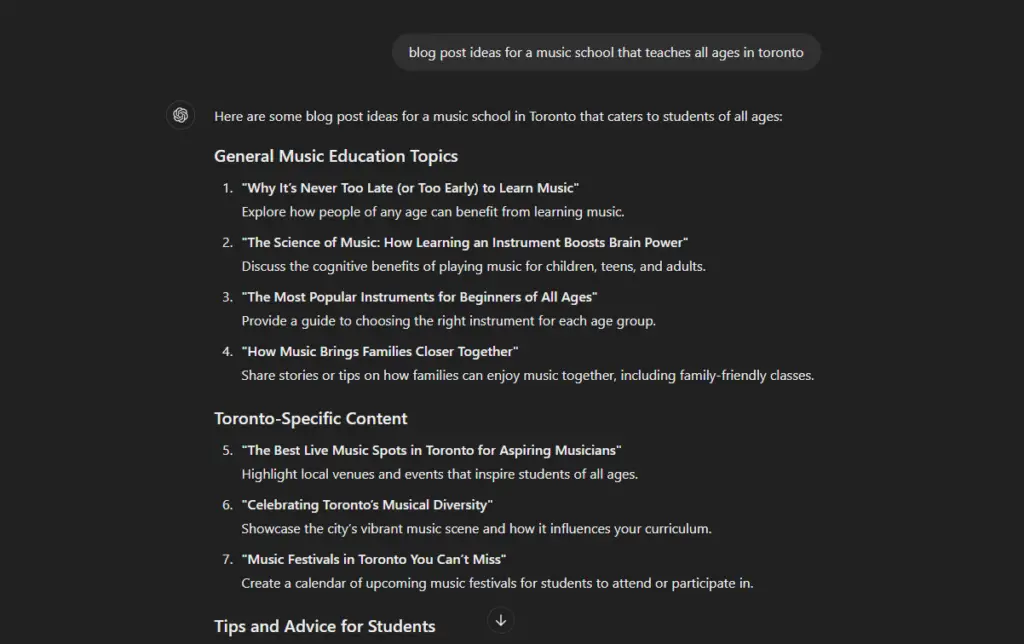
Once you’ve got this foundation, ChatGPT can help you brainstorm ideas and get creative, but don’t treat it as a one-click content machine.
1. Find Content Ideas (But Do Your Research Too!)
Creating content that answers your audience’s questions is a great way to build trust and get more traffic. ChatGPT can help you come up with ideas.
For example, let’s say a music school in Toronto wants to write blogs to attract students. They could ask ChatGPT for topic suggestions, then use tools like Google’s “People Also Ask” section to refine their ideas.
By combining ChatGPT’s suggestions with your research, you’ll find topics that hit the mark and align with search intent.

2. Write Better Prompts
ChatGPT is only as good as the instructions you give it. The more specific you are, the better results you’ll get.

Think of it like this: if you feed in vague info, you’ll get vague output. Play around with your prompts until you get what you need. And remember, you can keep the conversation going to tweak and refine the results.
3. Add Keywords Naturally
Keywords are essential for SEO—they tell search engines what your content is about. While ChatGPT isn’t great for finding keywords, it can help you use them naturally.
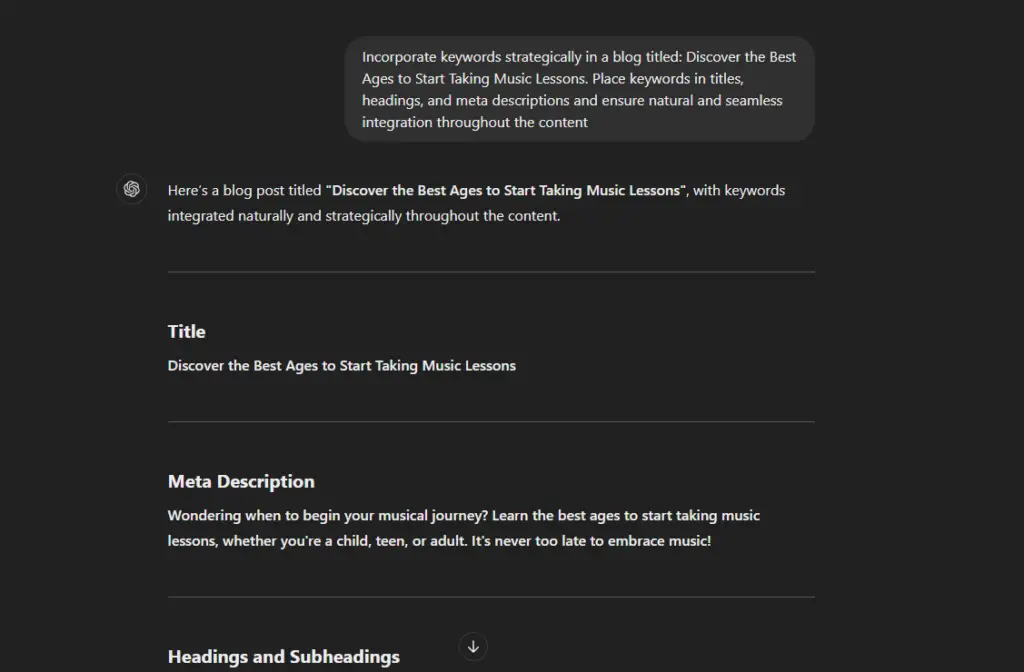
For example, you could ask ChatGPT to add keywords to a blog about the best ages to start music lessons. It can suggest ways to work keywords into titles, headings, and throughout the content in a way that feels seamless and natural.
4. Use It as a Creative Partner
Instead of using ChatGPT to write everything, treat it like a helper for brainstorming and polishing your work. It’s great for fixing grammar, improving clarity, or even suggesting analogies and examples.
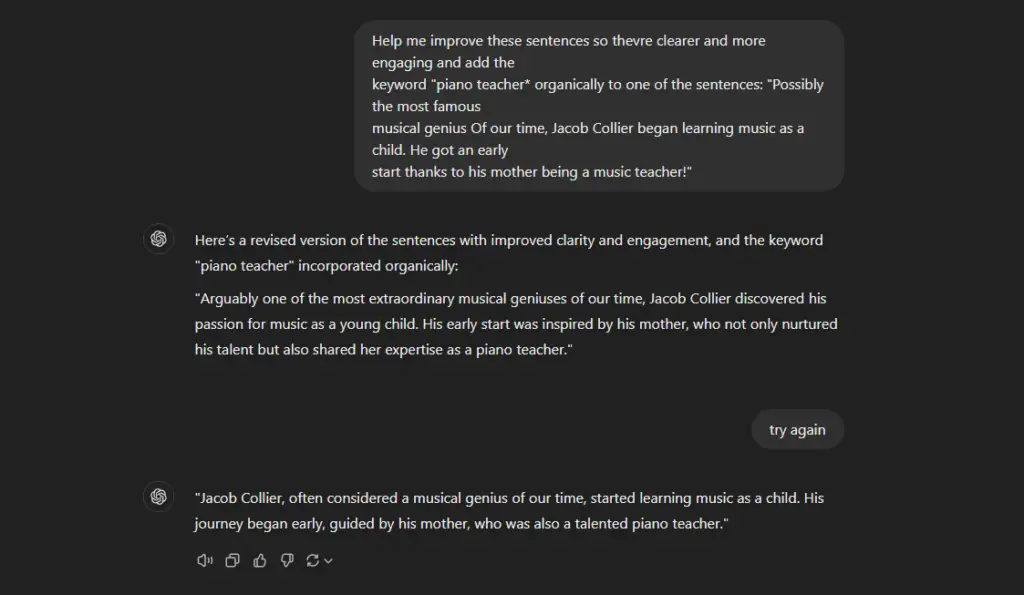
Stuck on where to start? Ask ChatGPT for an outline based on your blog’s title. It’s a great way to beat writer’s block and get organized.
5. Add Your Own Voice
To keep your content fresh and engaging, don’t just copy and paste ChatGPT’s suggestions. Add your own opinions, experiences, and personality. This is especially important if you’re writing for a brand.
Your unique touch makes the content authentic and helps you connect with your audience.
6. Simplify Content Promotion
Getting your content in front of people is just as important as creating it. ChatGPT can help you draft social posts, outreach emails, or other promotional copy.
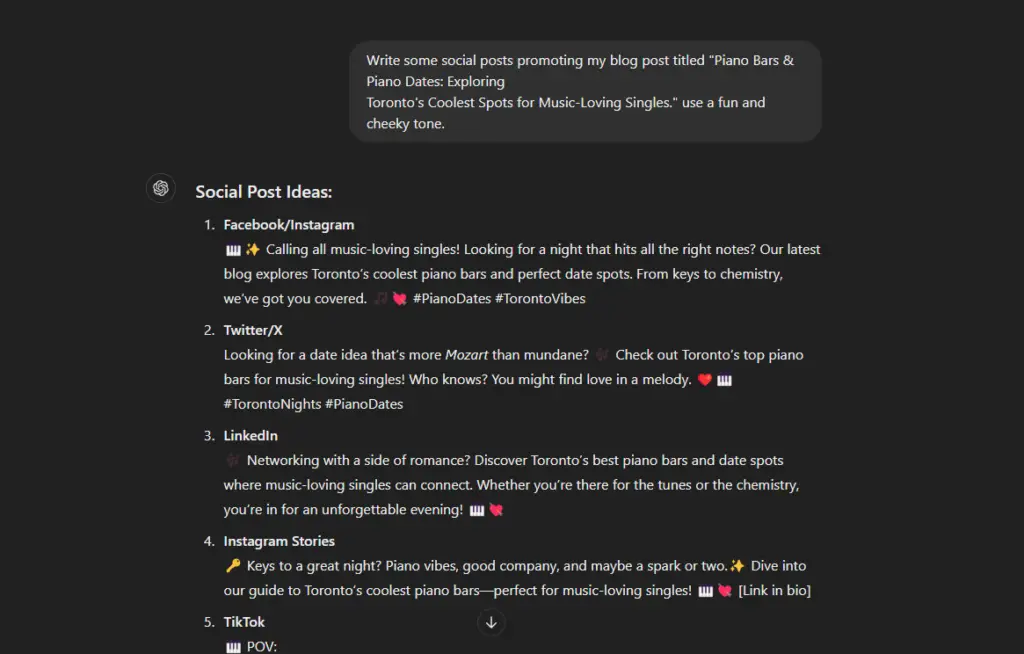
This saves time and lets you focus on higher-priority tasks while still driving traffic and building backlinks.
Using ChatGPT for SEO: The Bottom Line
ChatGPT is a powerful tool, but it’s not a magic solution. You’ll still need to guide it with your expertise, insights, and creativity.
Here’s a quick recap of the six ways to use ChatGPT for SEO:
- Find content ideas (and back them up with research).
- Write clear, specific prompts.
- Work keywords into your content naturally.
- Use ChatGPT to brainstorm and refine.
- Add your personal insights and voice.
- Save time on content promotion.
With the right approach, ChatGPT can make SEO easier without hurting your rankings. Just remember to use it as a tool—not a replacement for your expertise.

